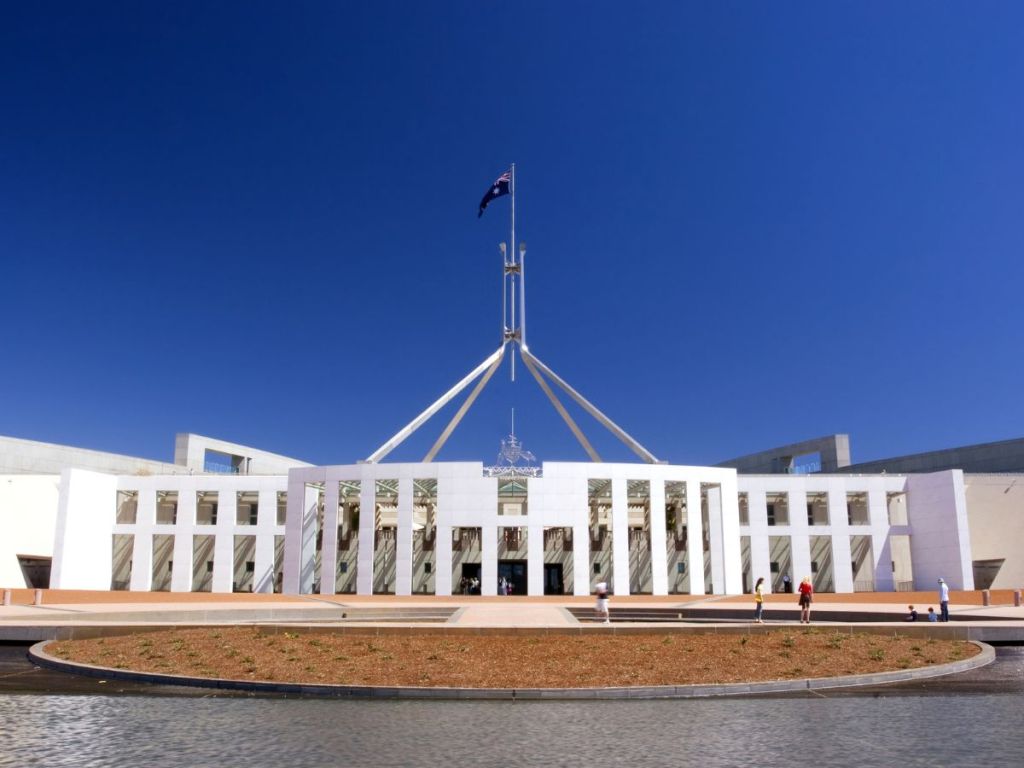The crypto industry in Australia is on track for a shake up after the Senate held a public hearing on the Digital Assets (Market Regulation) Bill today.
Australia’s largest crypto players including Kraken and Swyftx — as well as experts from Blockchain Australia and RMIT’s Blockchain Innovation Hub — spoke before Senators Andrew Bragg (Liberal) and Jess Walsh (Labor) to discuss the importance of advancing crypto regulation, and what Australia stands to benefit (or lose) from with such regulation.
It was agreed that consumer protection and encouraging innovation should be the primary concerns of the Bill.
From ‘dark web’ currency to BlackRock ETF
As a starter, crypto players and legal experts in Australia are supportive of the creation of the Digital Assets (Market Regulation) Bill to regulate the industry.
“Regulatory clarity” was one of the most frequently uttered terms throughout the hearing. Blockchain Australia CEO, Simon Callaghan said that such clarity will put Australia in line with global standards set by markets like Singapore, Hong Kong, Dubai, and Europe.
“We don’t want to have a situation where, five years down the road, regulators turn around and provide enforcement actions… it would kill jobs, and move investment and employment opportunities offshore,” he explained.
He maintains that the crypto industry in Australia is still “globally competitive”: “There are still opportunities, there is growth and resilience. The narrative surrounding crypto has shifted from it being a ‘dark web’ currency to BlackRock filing a Bitcoin ETF,” he adds.
Susannah Wilkinson, Chair of the Digital Commerce Committee from the Law Council of Australia, shared a similar thought. “[Implementing] a practical solution, streamlining licensing requirements for Australia and other jurisdictions” should be the route to take.
The Bill has some holes
The Bill, while comprehensive, still contained some areas in crypto that have yet to be addressed.
Jamie Lumsden, partner of law firm Hamilton Locke, pointed out that the Digital Assets (Market Regulation) Bill “does not capture digital assets that have a financial product purpose.”
“This refers to [projects or services] in crypto that are financial products but not covered by the Bill. They include DAOs, DEXes, and crypto staking and yielding services,” she adds.
“We are behind Singapore, aren’t we?”
Several times during the hearing, Senator Bragg asked a few experts on how “far behind” Australia is compared to nearby jurisdictions such as Singapore and Japan. The responses were sidestepped by many witnesses in the hearing, explaining that it was “difficult” to provide an exact time frame.
“If there is no regulation this time next year, would you invest more or less in crypto?” Bragg asked Max Baxby, Chief Compliance Officer for Revolut Australia, to which Baxby replied: “Very difficult to say.”
Caroline Bowler, CEO of BTC Markets, pointed to the EU as an example of an adequate approach in regulating crypto. “Clarity and detail with regards to capital requirement, time frame for applicants to receive a response for licensing” are two examples she highlighted.
It’s time to move forward
Some experts also reminded policymakers that crypto legislation in Australia has been “stuck” at the review and consultation process for years, making it more important than ever for the conversation to move forward to concrete lawmaking.
“It’s at the point where, how much are you going to gain from continuing with the token mapping, when you have sufficient information to move forward with legislation?” said Angelina Gomez, Director and Chair of the Digital Law Association in Australia.
Baxby similarly said that crypto legislation is due for “acceleration” and “expedition”: “It feels like we’ve been talking about this for a few years now,” he noted.
“Activities on crypto exchanges are the same as traditional exchanges, so they should be given the same treatment in terms of regulation,” noted Adam Percy, General Counsel at local crypto exchange Swyftx.
Australia’s Crypto Bill
The Digital Assets (Market Regulation) Bill 2023 was proposed by Liberal Senator Andrew Bragg in March this year.
The Bill outlines a number of policy recommendations for the crypto industry, covering stablecoins, licences for crypto exchanges, and new rules for crypto custodians to better protect consumers.
According to Senator Bragg, amid the ongoing crypto crackdown in the US, Australia is “falling behind” in crypto regulation. He also claimed that the federal government’s “token mapping” exercise is moving too slowly to keep up with the crypto industry’s pace.
“Our competitors are enhancing their regulatory systems while we establish endless reviews… The draft Bill should show how Australian consumers could be protected with capital requirements, key personnel tests, auditing and disclosure,” Senator Bragg said in a past statement.
The Digital Assets (Market Regulation) Bill was open for submissions to the Committee until 19 May 2023. The Senate Economics Legislation Committee was due for an inquiry and report by 2 August 2023, but has sought an extension and will report by 16 August 2023.
What happens next?
The hearing comes weeks ahead of the Australian Treasury’s upcoming licensing framework for crypto platforms and custodians, which will take place in the coming weeks.
If the Bill is passed in parliament and becomes law, a number of significant changes will take place for crypto exchanges and custodians. For example, crypto businesses would be required to hold a licence granted by the ASIC to operate in Australia.





